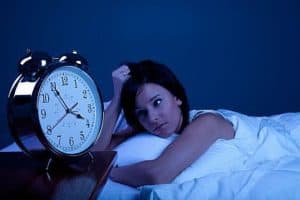Acupuncture for Insomnia: Just one of our six top tips
Acupuncture for insomnia is a frequent solution that we offer here at Riverwest Acpuncture in Portland OR. Through treatment, acupuncture helps address your insomnia and sleepiness. And it can also help to alleviate some of your stress and anxiety that is contributing to your difficulty sleeping. Treatments are so relaxing that some patients fall deeply asleep during an acupuncture session! Talk to us about using acupuncture for insomnia. We also use Chinese medicine herbs/teas that can help induce sleepiness and rest.
Extended Problems of Insomnia
Sleeplessness, not only does it wear on the emotions, it takes a toll on our physical health as well. Insomnia is caused by a number of physical, and/or emotional reasons. A sleepless night seems to drag on for hours. Being awake at night seems to amp up a variety of emotions: fear, loneliness, anxiety, frustration, leading to anger. Every small thing that bothered you during the day becomes exacerbated during the dark of the night. You don’t want to wake someone to talk with to destress the irrational thoughts going on in your mind. There seems to be no relief as the night drags on. You anticipate the morning hours only to escape the emotional nightmare. But then you face the day depleted of energy and strength wondering how you will get through the workday. It becomes an endless cycle of fatigue and frustration. Acupuncture for insomnia is quite effective. However, if that’s not an option for you, then the following are some tips on how to beat insomnia and get some sleep while also dispelling a few myths and misconceptions related to these tips.
Regular Exercise
Regular exercise can stimulate better sleep, but avoid working out just before bedtime. Exercise in the morning can stimulate your mind, increase your body temperature, and increase blood flow to keep you going throughout the workday. If you have no time to work out earlier in the day, schedule your workout 2 or 3 hours before bedtime.
Avoiding Screens
Many people try to relax by watching TV or using the computer to allow their mind to drift and relax. While this may feel relaxing, it is proven that the artificial light and the action of a TV or computer can stimulate the mind and reduce brain melatonin levels. It is important to increase melatonin to help you fall asleep. If you do need screen time, then try using glasses that block the light that reduces the melatonin levels. UVEX makes a pair that is easily available on Amazon. Otherwise, try playing relaxing music, such as classical music, or listening to an official sleep app that has the correct tempo to relax the mind.
A Glass of Wine
Drinking a glass of wine is thought to help you sleep better. While wine does relax the body and help you fall asleep, the alcohol will actually cause you to wake after a short period of sleep. It may help to have a glass of wine with dinner if taken 2-3 hours before bedtime as you begin to wind down after a day of work in preparation for bed time.
Nap Sparingly
Catching up on sleep over the weekend or napping during the day may disrupt your sleep pattern and only make it harder to get sleep on a regular basis. If you are the type that can benefit from a 10 to 20 minute power nap, then that may be what your body needs. If your nap extends to more than an hour, this will interfere with nighttime sleep. It is best to keep a regular sleep schedule during the week and throughout the weekend.
Don’t Watch the Clock
If you toss and turn in bed for more than an hour, it’s best to get up. Leave your bed, and sit with a good book or engage in a relaxing activity that could make you sleepy. Staying in bed watching the clock only builds frustration over sleeplessness. Your body may then associate your bed with such experiences. Break the habit of sleeplessness by getting out of bed. Move your body to a different place, and a different, low-key activity. Try reading, or writing in a journal, then return to bed. Journaling helps you unload the anxious thoughts and it helps you recognize patterns of thinking. It will reveal the issues that you struggle with which you can discuss with a professional counselor.
You can create positive associations for sleep by setting consistent bedtime routines. Turn off the TV, the computer, turn the lights low, and engage in restful practices. Those can include meditation, daydreaming, reading, taking a warm bath before bedtime. Keep a regular schedule for when you go to bed, and set an alarm for the same time to wake.
Sleeplessness will not simply go away without actively treating the problem. Talk to your doctor or one of our RiverWest Acupuncture specialists about your insomnia and discuss an appropriate treatment plan.
Ready for treatment?
Call 503-246-0103 to schedule an appointment.
Have a question?
To submit an inquiry to one of our professionals, email us at contact@riverwestacupuncture.com.Have a question about acupuncture or some of our other services? Send us your question and we’ll get back to you shortly with a reply!

